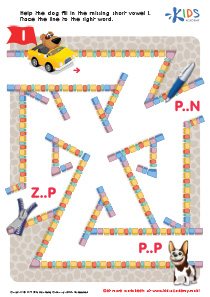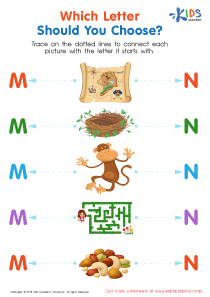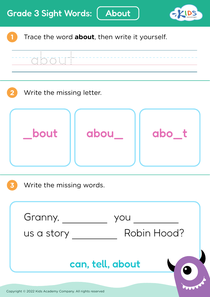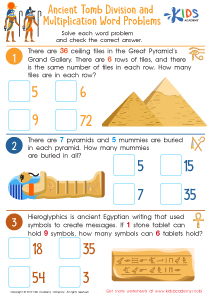Vocabulary Quizzes for 8-Year-Olds
5 results
5 filtered results
Clear all filters5 filtered results
-
From - To
Interactive Vocabulary Quizzes for 8-Year-Olds
Dive into an engaging world of words with our Interactive Vocabulary Quizzes, specifically designed for 8-Year-Olds. These quizzes offer a fun and dynamic way for children to expand their vocabulary, check their knowledge, and receive instant feedback to guide their learning journey. Each quiz is crafted with care to suit the learning needs of young minds, making the process of acquiring new words exciting and effective. Watch as your child builds a stronger vocabulary foundation, enhancing their communication skills and confidence in reading and writing. Start your child's vocabulary adventure today and open the door to a world of language possibilities!
Interactive quizzes on vocabulary are an invaluable tool in the educational journey of young learners, particularly for 8-year-olds who are at a crucial stage of language development. Engaging in vocabulary quizzes tailored specifically for 8-year-olds can significantly enhance their linguistic abilities, laying a solid foundation for future learning and academic success. This piece explores how these quizzes can be a game-changer in the studies of children.
Firstly, vocabulary for 8-year-olds is designed with their cognitive development in mind. At this age, children are rapidly expanding their language skills, moving beyond simple phrases to more complex sentences. They are beginning to read more fluently and are eager to understand and use new words. Vocabulary quizzes tap into this natural curiosity, presenting new words in an interactive and fun format. This not only makes learning enjoyable but also increases the likelihood of retention.
Moreover, these quizzes are structured in a way that promotes cognitive engagement. Children are required to think critically as they encounter multiple-choice questions, matching exercises, and fill-in-the-blanks, among other formats. This variety ensures that children are not merely memorizing words but are understanding them in different contexts. Such an approach is crucial for building a rich vocabulary that goes beyond surface-level learning.
Another key benefit is the immediate feedback provided by interactive quizzes. Unlike traditional homework or paper-based tests where feedback can be delayed, online quizzes offer instant responses. This immediacy allows children to quickly grasp their mistakes and learn the correct answers, fostering a positive learning loop. It instills a sense of achievement and motivates them to keep improving. For 8-year-olds, who are at a sensitive phase of building their academic self-esteem, such positive reinforcement is invaluable.
Interactive quizzes on vocabulary for 8-year-olds also cater to various learning styles. Whether a child is a visual learner, prefers auditory learning, or learns best through kinesthetic means, these quizzes incorporate elements that appeal to different senses. For instance, words are often accompanied by images or used in interactive stories, and some quizzes include audio options. This multimodal approach ensures that every child has the opportunity to learn in a way that suits them best, making vocabulary acquisition more accessible and effective.
Furthermore, the convenience and accessibility of online quizzes mean that learning can happen anytime, anywhere. This flexibility encourages children to engage with vocabulary exercises outside of the classroom, integrating learning into their daily routines. Parents and educators can easily track progress through these platforms, allowing for personalized support and encouragement tailored to each child's needs.
In conclusion, interactive quizzes on vocabulary for 8-year-olds are a powerful tool in supporting children's educational development. They make learning engaging, comprehensive, and accessible, addressing the unique needs of young learners. By incorporating these quizzes into their study routines, children not only expand their vocabulary but also develop a love for learning that will serve them well throughout their academic journey and beyond.













